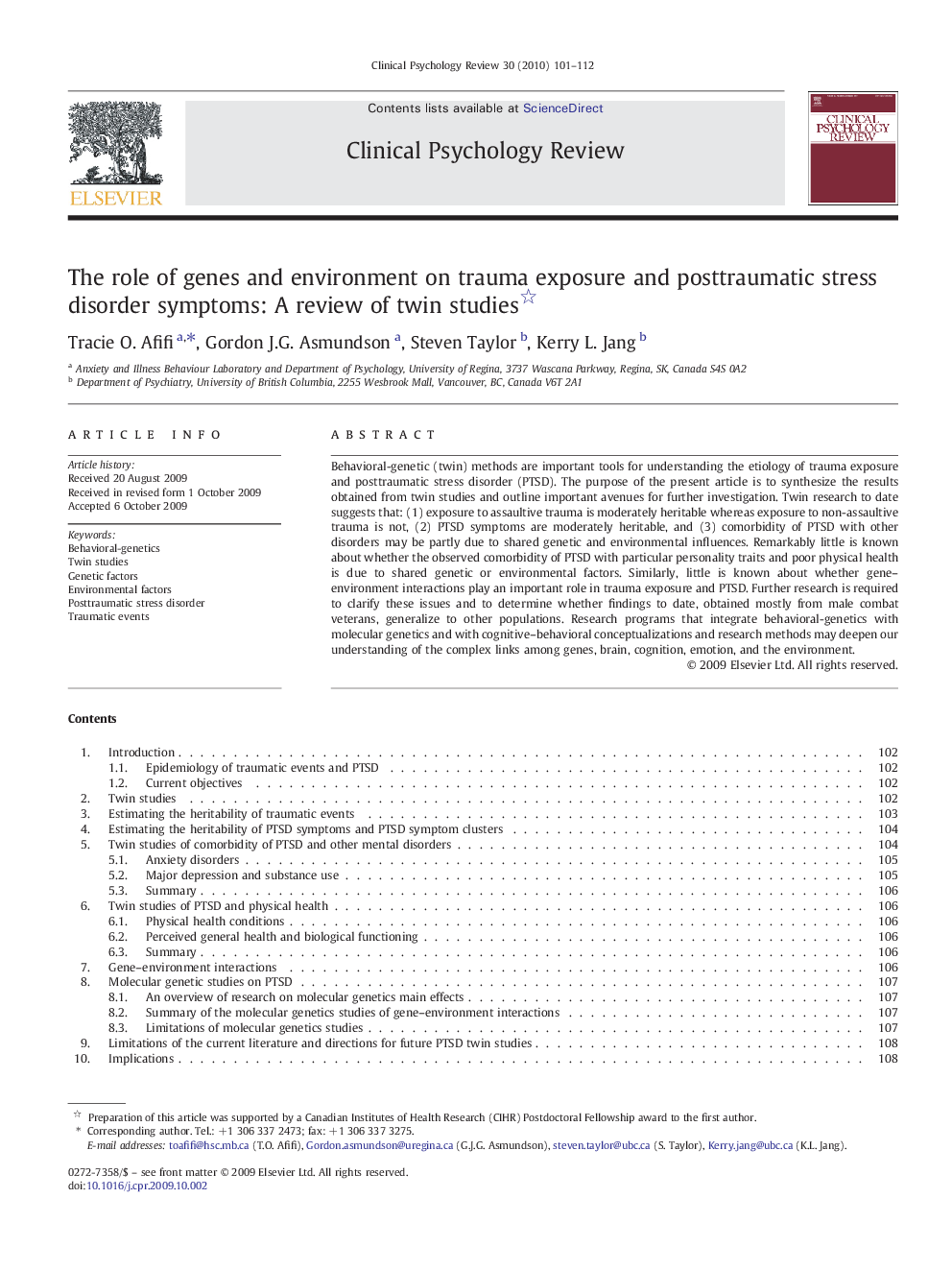| Article ID | Journal | Published Year | Pages | File Type |
|---|---|---|---|---|
| 904016 | Clinical Psychology Review | 2010 | 12 Pages |
Behavioral-genetic (twin) methods are important tools for understanding the etiology of trauma exposure and posttraumatic stress disorder (PTSD). The purpose of the present article is to synthesize the results obtained from twin studies and outline important avenues for further investigation. Twin research to date suggests that: (1) exposure to assaultive trauma is moderately heritable whereas exposure to non-assaultive trauma is not, (2) PTSD symptoms are moderately heritable, and (3) comorbidity of PTSD with other disorders may be partly due to shared genetic and environmental influences. Remarkably little is known about whether the observed comorbidity of PTSD with particular personality traits and poor physical health is due to shared genetic or environmental factors. Similarly, little is known about whether gene–environment interactions play an important role in trauma exposure and PTSD. Further research is required to clarify these issues and to determine whether findings to date, obtained mostly from male combat veterans, generalize to other populations. Research programs that integrate behavioral-genetics with molecular genetics and with cognitive–behavioral conceptualizations and research methods may deepen our understanding of the complex links among genes, brain, cognition, emotion, and the environment.
